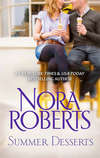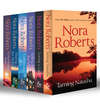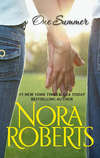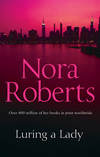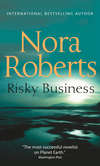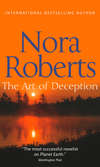Kitabı oku: «The Stanislaskis ( Books 1-6)», sayfa 18
“And nothing was done?”
“Nope, not a thing. Why Mr. and Mrs. Kowalski, the young couple in 101, had a piece of plaster as big as a pie plate fall out of their ceiling. Mik fixed it.”
“So the tenants were forced to take on the repairs themselves, due to Hayward’s neglect.”
“I guess you could say that. Up until the last few weeks.”
“Oh, and what happened in the last few weeks?”
“That would be when Sydney—that’s Miss Hayward—took over the company. She’s the granddaughter of old man Hayward. Heard he’d been real sick the last couple years. Guess things got away from him. Anyway, Mik went to see her, and she came out herself that very day to take a look. Not two weeks later, and the building was crawling with construction workers. We got new windows. Got a new roof going on right this minute. All the plumbing’s being fixed, too. Every single thing Mik put on the list is going to be taken care of.”
“Really? And did all this happen before or after your injury?”
“Before,” Mrs. Wolburg said, a bit impatient with the sarcasm. “I told you all that hammering and sawing was the reason nobody heard me when I fell. And I want you to know that Miss Hayward was there checking the place out again that day. She and Mik found me. She sat right there on the floor and talked to me, brought me a pillow and a blanket and stayed with me until the ambulance came. Came to the hospital, too, and took care of all my medical bills. Been to visit me three times since I’ve been here.”
“Wouldn’t you say that Hayward, and therefore Sydney Hayward, is responsible for you being here?”
“Bad eyes and a hole in the floor’s responsible,” she said evenly. “And I’ll tell you just what I told those ambulance chasers who’ve been calling my family. I’ve got no reason to sue Hayward. They’ve been taking care of me since the minute I was hurt. Now maybe if they’d dallied around and tried to make like it wasn’t any of their doing, I’d feel differently. But they did what was right, and you can’t ask for better than that. Sydney’s got ethics, and as long as she’s in charge I figure Hayward has ethics, too. I’m pleased to live in a building owned by a company with a conscience.”
Sydney stayed where she was after the interview ended. Saying nothing, she switched off the set and waited.
“You can’t buy that kind of goodwill,” Mavis decided. “Your method may have been unorthodox, Sydney, and I don’t doubt there will still be some backwash to deal with, but all in all, I think the stockholders will be pleased.”
The discussion labored on another thirty minutes, but the crisis had passed.
The moment Sydney was back in her own office, she picked up the phone. The receiver rang in her ear twelve times, frustrating her, before it was finally picked up on the other end.
“Yeah?”
“Mikhail?”
“Nope, he’s down the hall.”
“Oh, well then, I—”
“Hang on.” The phone rattled, clanged then clattered as the male voice boomed out Mikhail’s name. Feeling like a fool, Sydney stayed on the line.
“Hello?”
“Mikhail, it’s Sydney.”
He grinned and grabbed the jug of ice water out of the refrigerator. “Hello, anyway.”
“I just saw the news. I suppose you knew.”
“Caught it on my lunch break. So?”
“You asked her to do it?”
“No, I didn’t.” He paused long enough to gulp down about a pint of water. “I told her how things were, and she came up with the idea herself. It was a good one.”
“Yes, it was a good one. And I owe you.”
“Yeah?” He thought about it. “Okay. Pay up.”
Why she’d expected him to politely refuse to take credit was beyond her. “Excuse me?”
“Pay up, Hayward. You can have dinner with me on Sunday.”
“Really, I don’t see how one has to do with the other.”
“You owe me,” he reminded her, “and that’s what I want. Nothing fancy, okay? I’ll pick you up around four.”
“Four? Four in the afternoon for dinner?”
“Right.” He pulled a carpenter’s pencil out of his pocket. “What’s your address?”
He let out a low whistle as she reluctantly rattled it off. “Nice.” He finished writing it on the wall. “Got a phone number? In case something comes up.”
She was scowling, but she gave it to him. “I want to make it clear that—”
“Make it clear when I pick you up. I’m on the clock, and you’re paying.” On impulse he outlined her address and phone number with a heart. “See you Sunday. Boss.”
CHAPTER SIX
Sydney studied her reflection in the cheval glass critically and cautiously. It wasn’t as if it were a date. She’d reminded herself of that several hundred times over the weekend. It was more of a payment, and no matter how she felt about Mikhail, she owed him. Haywards paid their debts.
Nothing formal. She’d taken him at his word there. The little dress was simple, its scooped neck and thin straps a concession to the heat. The nipped in waist was flattering, the flared skirt comfortable. The thin, nearly weightless material was teal blue. Not that she’d paid any attention to his suggestion she wear brighter colors.
Maybe the dress was new, purchased after a frantic two hours of searching—but that was only because she’d wanted something new.
The short gold chain with its tiny links and the hoops at her ears were plain but elegant. She’d spent longer than usual on her makeup, but that was only because she’d been experimenting with some new shades of eyeshadow.
After much debate, she’d opted to leave her hair down. Then, of course, she’d had to fool with it until the style suited her. Fluffed out, skimming just above her shoulders seemed casual enough to her. And sexy. Not that she cared about being sexy tonight, but a woman was entitled to a certain amount of vanity.
She hesitated over the cut-glass decanter of perfume, remembering how Mikhail had described her scent. With a shrug, she touched it to pulse points. It hardly mattered if it appealed to him. She was wearing it for herself.
Satisfied, she checked the contents of her purse, then her watch. She was a full hour early. Blowing out a long breath, she sat down on the bed. For the first time in her life, she actively wished for a drink.
An hour and fifteen minutes later, after she had wandered through the apartment, plumping pillows, rearranging statuary then putting it back where it had been in the first place, he knocked on the door. She stopped in the foyer, found she had to fuss with her hair another moment, then pressed a hand to her nervous stomach. Outwardly composed, she opened the door.
It didn’t appear he’d worried overmuch about his attire. The jeans were clean but faded, the high-tops only slightly less scuffed than his usual work boots. His shirt was tucked in—a definite change—and was a plain, working man’s cotton the color of smoke. His hair flowed over the collar, so black, so untamed no woman alive could help but fantasize about letting her fingers dive in.
He looked earthy, a little wild, and more than a little dangerous.
And he’d brought her a tulip.
“I’m late.” He held out the flower, thinking she looked as cool and delicious as a sherbert parfait in a crystal dish. “I was working on your face.”
“You were—what?”
“Your face.” He slid a hand under her chin, his eyes narrowing in concentration. “I found the right piece of rosewood and lost track of time.” As he studied, his fingers moved over her face as they had the wood, searching for answers. “You will ask me in?”
Her mind, empty as a leaky bucket, struggled to fill again. “Of course. For a minute.” She stepped back, breaking contact. “I’ll just put this in water.”
When she left him, Mikhail let his gaze sweep the room. It pleased him. This was not the formal, professionally decorated home some might have expected of her. She really lived here, among the soft colors and quiet comfort. Style was added by a scattering of Art Nouveau, in the bronzed lamp shaped like a long, slim woman, and the sinuous etched flowers on the glass doors of a curio cabinet displaying a collection of antique beaded bags.
He noted his sculpture stood alone in a glossy old shadow box, and was flattered.
She came back, carrying the tulip in a slim silver vase.
“I admire your taste.”
She set the vase atop the curio. “Thank you.”
“Nouveau is sensuous.” He traced a finger down the flowing lines of the lamp. “And rebellious.”
She nearly frowned before she caught herself. “I find it attractive. Graceful.”
“Graceful, yes. Also powerful.”
She didn’t care for the way he was smiling at her, as if he knew a secret she didn’t. And that the secret was her. “Yes, well, I’m sure as an artist you’d agree art should have power. Would you like a drink before we go?”
“No, not before I drive.”
“Drive?”
“Yes. Do you like Sunday drives, Sydney?”
“I…” She picked up her purse to give her hands something to do. There was no reason, none at all, for her to allow him to make her feel as awkward as a teenager on a first date. “I don’t get much opportunity for them in the city.” It seemed wise to get started. She moved to the door, wondering what it would be like to be in a car with him. Alone. “I didn’t realize you kept a car.”
His grin was quick and a tad self-mocking as they moved out into the hall. “A couple of years ago, after my art had some success, I bought one. It was a little fantasy of mine. I think I pay more to keep it parked than I did for the car. But fantasies are rarely free.”
In the elevator, he pushed the button for the garage. “I think about it myself,” she admitted. “I miss driving, the independence of it, I suppose. In Europe, I could hop in and zoom off whenever I chose. But it seems more practical to keep a driver here than to go to war every time you need a parking space.”
“Sometime we’ll go up north, along the river, and you can drive.”
The image was almost too appealing, whipping along the roads toward the mountains upstate. She thought it was best not to comment. “Your report came in on Friday,” she began.
“Not today.” He reached down to take her hand as they stepped into the echoing garage. “Talking reports can wait till Monday. Here.” He opened the door of a glossy red-and-cream MG. The canvas top was lowered. “You don’t mind the top down?” he asked as she settled inside.
Sydney thought of the time and trouble she’d taken with her hair. And she thought of the freedom of having even a hot breeze blow through it. “No, I don’t mind.”
He climbed into the driver’s seat, adjusting long legs, then gunned the engine. After taking a pair of mirrored sunglasses off the dash, he pulled out. The radio was set on rock. Sydney found herself smiling as they cruised around Central Park.
“You didn’t mention where we were going.”
“I know this little place. The food is good.” He noted her foot was tapping along in time with the music. “Tell me where you lived in Europe.”
“Oh, I didn’t live in any one place. I moved around. Paris, Saint Tropez, Venice, London, Monte Carlo.”
“Perhaps you have Gypsies in your blood, too.”
“Perhaps.” Not Gypsies, she thought. There had been nothing so romantic as wanderlust in her hopscotching travels through Europe. Only dissatisfaction, and a need to hide until wounds had healed. “Have you ever been?”
“When I was very young. But I would like to go back now that I am old enough to appreciate it. The art, you see, and the atmosphere, the architecture. What places did you like best?”
“A little village in the countryside of France where they milked cows by hand and grew fat purple grapes. There was a courtyard at the inn where I stayed, and the flowers were so big and bright. In the late afternoon you could sit and drink the most wonderful white wine and listen to the doves coo.” She stopped, faintly embarrassed. “And of course, Paris,” she said quickly. “The food, the shopping, the ballet. I knew several people, and enjoyed the parties.”
Not so much, he thought, as she enjoyed sitting alone and listening to cooing doves.
“Do you ever think about going back to the Soviet Union?” she asked him.
“Often. To see the place where I was born, the house we lived in. It may not be there now. The hills where I played as a child. They would be.”
His glasses only tossed her own reflection back at her. But she thought, behind them, his eyes would be sad. His voice was. “Things have changed so much, so quickly in the last few years. Glasnost, the Berlin Wall. You could go back.”
“Sometimes I think I will, then I wonder if it’s better to leave it a memory—part bitter, part sweet, but colored through the eyes of a child. I was very young when we left.”
“It was difficult.”
“Yes. More for my parents who knew the risks better than we. They had the courage to give up everything they had ever known to give their children the one thing they had never had. Freedom.”
Moved, she laid a hand over his on the gearshift. Margerite had told her the story of escaping into Hungary in a wagon, making it seem like some sort of romantic adventure. It didn’t seem romantic to Sydney. It seemed terrifying. “You must have been frightened.”
“More than I ever hope to be again. At night I would lie awake, always cold, always hungry, and listen to my parents talk. One would reassure the other, and they would plan how far we might travel the next day—and the next. When we came to America, my father wept. And I understood it was over. I wasn’t afraid anymore.”
Her own eyes had filled. She turned away to let the wind dry them. “But coming here must have been frightening, too. A different place, different language, different culture.”
He heard the emotion in her voice. Though touched, he didn’t want to make her sad. Not today. “The young adjust quickly. I had only to give the boy in the next house a bloody nose to feel at home.”
She turned back, saw the grin and responded with a laugh. “Then, I suppose, you became inseparable friends.”
“I was best man at his wedding only two years ago.”
With a shake of her head, she settled back. It was then she noticed they were crossing the bridge over to Brooklyn. “You couldn’t find a place to have dinner in Manhattan?”
His grin widened. “Not like this one.”
A few minutes later, he was cruising through one of the old neighborhoods with its faded brick row houses and big, shady trees. Children scrambled along the sidewalks, riding bikes, jumping rope. At the curb where Mikhail stopped, two boys were having a deep and serious transaction with baseball cards.
“Hey, Mik!” Both of them jumped up before he’d even climbed out of the car. “You missed the game. We finished an hour ago.”
“I’ll catch the next one.” He glanced over to see that Sydney had already gotten out and was standing in the street, studying the neighborhood with baffled and wary eyes. He leaned over and winked. “I got a hot date.”
“Oh, man.” Twelve-year-old disgust prevented either of them from further comment.
Laughing, Mikhail walked over to grab Sydney’s hand and pull her to the sidewalk. “I don’t understand,” she began as he led her across the concrete heaved up by the roots of a huge old oak. “This is a restaurant?”
“No.” He had to tug to make her keep up with him as he climbed the steps. “It’s a house.”
“But you said—”
“That we were going to dinner.” He shoved the door open and took a deep sniff. “Smells like Mama made Chicken Kiev. You’ll like.”
“Your mother?” She nearly stumbled into the narrow entranceway. Scattered emotions flew inside her stomach like a bevy of birds. “You bought me to your parents’ house?”
“Yes, for Sunday dinner.”
“Oh, good Lord.”
He lifted a brow. “You don’t like Chicken Kiev?”
“No. Yes. That isn’t the point. I wasn’t expecting—”
“You’re late,” Yuri boomed. “Are you going to bring the woman in or stand in the doorway?”
Mikhail kept his eyes on Sydney’s. “She doesn’t want to come in,” he called back.
“That’s not it,” she whispered, mortified. “You might have told me about this so I could have…oh, never mind.” She brushed past him to take the couple of steps necessary to bring her into the living room. Yuri was just hauling himself out of a chair.
“Mr. Stanislaski, it’s so nice of you to have me.” She offered a hand and had it swallowed whole by his.
“You are welcome here. You will call me Yuri.”
“Thank you.”
“We are happy Mikhail shows good taste.” Grinning, he used a stage whisper. “His mama, she didn’t like the dancer with the blond hair.”
“Thanks, Papa.” Casually Mikhail draped an arm over Sydney’s shoulders—felt her resist the urge to shrug it off. “Where is everyone?”
“Mama and Rachel are in the kitchen. Alex is later than you. Alex sees all the girls, at the same time,” Yuri told Sydney. “It should confuse him, but it does not.”
“Yuri, you have not taken the trash out yet.” A small woman with an exotic face and graying hair came out of the kitchen, carrying silverware in the skirt of her apron.
Yuri gave his son an affectionate thump on the back that nearly had Sydney pitching forward. “I wait for Mikhail to come and take it.”
“And Mikhail will wait for Alex.” She set the flatware down on a heavy table at the other end of the room, then came to Sydney. Her dark eyes were shrewd, not unfriendly, but quietly probing. She smelled of spice and melted butter. “I am Nadia, Mikhail’s mother.” She offered a hand. “We are happy to have you with us.”
“Thank you. You have a lovely home.”
She had said it automatically, meaningless politeness. But the moment the words were out, Sydney realized they were true. The entire house would probably fit into one wing of her mother’s Long Island estate, and the furniture was old rather than antique. Doilies as charming and intricate as those she had seen at Mrs. Wolburg’s covered the arms of chairs. The wallpaper was faded, but that only made the tiny rosebuds scattered over it seem more lovely.
The strong sunlight burst through the window and showed every scar, every mend. Just as it showed how lovingly the woodwork and table surfaces had been polished.
Out of the corner of her eye she caught a movement. As she glanced over, she watched a plump ball of gray fur struggling, whimpering from under a chair.
“That is Ivan,” Yuri said, clucking to the puppy. “He is only a baby.” He sighed a little for his old mutt Sasha who had died peacefully at the age of fifteen six months before. “Alex brings him home from pound.”
“Saved you from walking the last mile, right, Ivan?” Mikhail bent down to ruffle fur. Ivan thumped his tail while giving Sydney nervous looks. “He is named for Ivan the Terrible, but he’s a coward.”
“He’s just shy,” Sydney corrected, then gave in to need and crouched down. She’d always wanted a pet, but boarding schools didn’t permit them. “There, aren’t you sweet?” The dog trembled visibly for a moment when she stroked him, then began to lick the toes that peeked out through her sandals.
Mikhail began to think the pup had potential.
“What kind is he?” she asked.
“He is part Russian wolfhound,” Yuri declared.
“With plenty of traveling salesmen thrown in.” The voice came from the kitchen doorway. Sydney looked over her shoulder and saw a striking woman with a sleek cap of raven hair and tawny eyes. “I’m Mikhail’s sister, Rachel. You must be Sydney.”
“Yes, hello.” Sydney straightened, and wondered what miracles in the gene pool had made all the Stanislaskis so blindingly beautiful.
“Dinner’ll be ready in ten minutes.” Rachel’s voice carried only the faintest wisp of an accent and was as dark and smooth as black velvet. “Mikhail, you can set the table.”
“I have to take out the trash,” he told her, instantly choosing the lesser of two evils.
“I’ll do it.” Sydney’s impulsive offer was greeted with casual acceptance. She was nearly finished when Alex, as dark, exotic and gorgeous as the rest of the family, strolled in.
“Sorry I’m late, Papa. Just finished a double shift. I barely had time to…” He trailed off when he spotted Sydney. His mouth curved and his eyes flickered with definite interest. “Now I’m really sorry I’m late. Hi.”
“Hello.” Her lips curved in response. That kind of romantic charm could have raised the blood pressure on a corpse. Providing it was female.
“Mine,” Mikhail said mildly as he strolled back out of the kitchen.
Alex merely grinned and continued walking toward Sydney. He took her hand, kissed the knuckles. “Just so you know, of the two of us, I’m less moody and have a steadier job.”
She had to laugh. “I’ll certainly take that into account.”
“He thinks he’s a cop.” Mikhail sent his brother an amused look. “Mama says to wash your hands. Dinner’s ready.”
Sydney was certain she’d never seen more food at one table. There were mounds of chicken stuffed with rich, herbed butter. It was served with an enormous bowl of lightly browned potatoes and a platter heaped with slices of grilled vegetables that Nadia had picked from her own kitchen garden that morning. There was a tower of biscuits along with a mountain of some flaky stuffed pastries that was Alex’s favorite dish.
Sydney sipped the crisp wine that was offered along with vodka and wondered. The amount and variety of food was nothing compared to the conversation.
Rachel and Alex argued over someone named Goose. After a winding explanation, Sydney learned that while Alex was a rookie cop, Rachel was in her first year with the public defender’s office. And Goose was a petty thief Rachel was defending.
Yuri and Mikhail argued about baseball. Sydney didn’t need Nadia’s affectionate translation to realize that while Yuri was a diehard Yankee fan, Mikhail stood behind the Mets.
There was much gesturing with silverware and Russian exclamations mixed with English. Then laughter, a shouted question, and more arguing.
“Rachel is an idealist,” Alex stated. With his elbows on the table and his chin rested on his joined hands, he smiled at Sydney. “What are you?”
She smiled back. “Too smart to be put between a lawyer and a cop.”
“Elbows off,” Nadia said, and gave her son a quick rap. “Mikhail says you are a businesswoman. And that you are very smart. And fair.”
The description surprised her enough that she nearly fumbled. “I try to be.”
“Your company was in a sticky situation last week.” Rachel downed the last of her vodka with a panache Sydney admired. “You handled it well. It seemed to me that rather than trying to be fair you simply were. Have you known Mikhail long?”
She segued into the question so neatly, Sydney only blinked. “No, actually. We met last month when he barged into my office ready to crush any available Hayward under his work boot.”
“I was polite,” he corrected.
“You were not polite.” Because she could see Yuri was amused, she continued. “He was dirty, angry and ready to fight.”
“His temper comes from his mama,” Yuri informed Sydney. “She is fierce.”
“Only once,” Nadia said with a shake of her head. “Only once did I hit him over the head with a pot. He never forgets.”
“I still have the scar. And here.” Yuri pointed to his shoulder. “Where you threw the hairbrush at me.”
“You should not have said my new dress was ugly.”
“It was ugly,” he said with a shrug, then tapped a hand on his chest. “And here, where you—”
“Enough.” All dignity, she rose. “Or our guest will think I am tyrant.”
“She is a tyrant,” Yuri told Sydney with a grin.
“And this tyrant says we will clear the table and have dessert.”
Sydney was still chuckling over it as Mikhail crossed the bridge back into Manhattan. Sometime during the long, comfortable meal she’d forgotten to be annoyed with him. Perhaps she’d had a half a glass too much wine. Certainly she’d eaten entirely too much kissel—the heavenly apricot pudding Nadia had served with cold, rich cream. But she was relaxed and couldn’t remember ever having spent a more enjoyable Sunday evening.
“Did your father make that up?” Snuggled back in her seat, Sydney turned her head to study Mikhail’s profile. “About your mother throwing things?”
“No, she throws things.” He downshifted and cruised into traffic. “Once a whole plate of spaghetti and meatballs at me because my mouth was too quick.”
Her laughter came out in a burst of enjoyment. “Oh, I would have loved to have seen that. Did you duck?”
He flicked her a grin. “Not fast enough.”
“I’ve never thrown anything in my life.” Her sigh was part wistful, part envious. “I think it must be very liberating. They’re wonderful,” she said after another moment. “Your family. You’re very lucky.”
“So you don’t mind eating in Brooklyn?”
Frowning, she straightened a bit. “It wasn’t that. I told you, I’m not a snob. I just wasn’t prepared. You should have told me you were taking me there.”
“Would you have gone?”
She opened her mouth then closed it again. After a moment, she let her shoulders rise and fall. “I don’t know. Why did you take me?”
“I wanted to see you there. Maybe I wanted you to see me there, too.”
Puzzled, she turned to look at him again. They were nearly back now. In a few more minutes he would go his way and she hers. “I don’t understand why that should matter to you.”
“Then you understand much too little, Sydney.”
“I might understand if you’d be more clear.” It was suddenly important, vital, that she know. The tips of her fingers were beginning to tingle so that she had to rub them together to stop the sensation.
“I’m better with my hands than with words.” Impatient with her, with himself, he pulled into the garage beneath her building. When he yanked off his sunglasses, his eyes were dark and turbulent.
Didn’t she know that her damn perfume had his nerve ends sizzling? The way she laughed, the way her hair lifted in the wind. How her eyes had softened and yearned as she’d looked at the silly little mutt of his father’s.
It was worse, much worse now that he’d seen her with his family. Now that he’d watched how her initial stiffness melted away under a few kind words. He’d worried that he’d made a mistake, that she would be cold to his family, disdainful of the old house and simple meal.
Instead she’d laughed with his father, dried dishes with his mother. Alex’s blatant flirting hadn’t offended but rather had amused her. And when Rachel had praised her handling of the accident with Mrs. Wolburg, she’d flushed like a schoolgirl.
How the hell was he supposed to know he’d fall in love with her?
And now that she was alone with him again, all that cool reserve was seeping back. He could see it in the way her spine straightened when she stepped out of the car.
Hell, he could feel it—it surprised him that frost didn’t form on his windshield.
“I’ll walk you up.” He slammed the door of the car.
“That isn’t necessary.” She didn’t know what had spoiled the evening, but was ready to place the blame squarely on his shoulders.
“I’ll walk you up,” he repeated, and pulled her over to the elevator.
“Fine.” She folded her arms and waited.
The moment the doors opened, they entered without speaking. Both of them were sure it was the longest elevator ride on record. Sydney swept out in front of him when they reached her floor. She had her keys out and ready two steps before they hit her door.
“I enjoyed your family,” she said, carefully polite. “Be sure to tell your parents again how much I appreciated their hospitality.” The lock snapped open. “You can reach me in the office if there are any problems this week.”
He slapped his hand on the door before she could shut it in his face. “I’m coming in.”
Ücretsiz ön izlemeyi tamamladınız.











